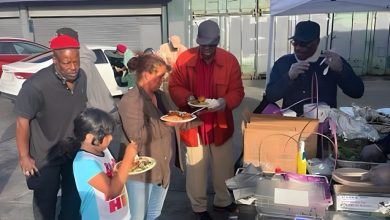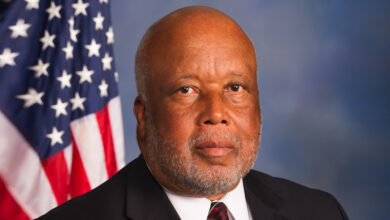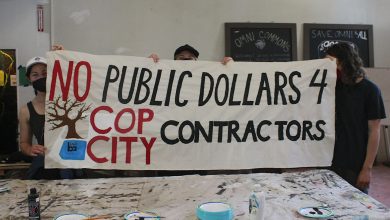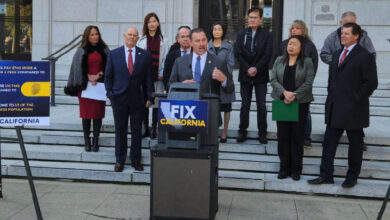In ‘The New Brownies’ Book,’ Authors Build on Magazine for Black, Brown Families During Harlem Renaissance

By Tanya Dennis
Roots are deep in Deep East Oakland.
The Roots Community Health Center was founded in 1998 in Deep East Oakland at 99th and International Blvd. with a mission is to uplift those impacted by systemic inequities and poverty.
Roots accomplishes this through medical and behavioral health care, health navigation, workforce enterprises, housing, outreach, and advocacy.
“Seeing the disparities in our area, our approach — to be on the ground — best served this population,” said Dr. Noha Aboeleta, the founder of Roots says. “ROOTS is a community-based response organization. Over the years we grew from two people to 200 full-time staff.”
Unable to do all the interventions that were needed on their own, and recognizing the value of collaboration, Roots leadership brought together what would become the ‘40 by 40’ Council “to preserve what we have and as a resource to continue to build,” Aboeleta said.
Under Aboeleta’s leadership, the 40 by 40 Council consists of the Black Cultural Zone (BCZ), the Brotherhood of Elders, and the East Oakland Youth Development Center (EOYDC). The four stakeholders and community builders agreed it was time to take their direct services and advocacy to the neighborhood level. Together, they identified a 40-block by 40-block area in Deep East Oakland for development, preservation, and restoration.
Explaining what she terms her intentional selection of organizations for the Council, Aboeleta says, “We partnered with Black Cultural Zone as they work with a coalition of residents, government agencies, churches and grassroots organizing and community groups to help keep Black folks in East Oakland through building power, securing land and directing more dollars to community driven projects.
BCZ provides space at Liberation Park where people can gather and convene, Aboeleta said. In addition, BCZ has a development corporation, and we recognized the need to develop commercial and residential space for us to address those that have been displaced. To assure that they would have the first ‘right of return,’ a development corporation would be vital.”
Next, Aboeleta reached out to the Brotherhood of Elders because they have such an important place in the community: “bringing history wisdom and relationship with a focus on Black men and boys,” Aboeleta said.
Aboeleta regards the fourth stakeholder, EOYDC, as the anchor of the Council.
EOYDC, developed with aid from the Clorox Corporation, has operated since 1978 in Deep East Oakland and has focused on youth development, providing social services to youth for three decades
EOYDC develops the social leadership capacities of youth and young adults ages 5-24 so youth achieve excellence in education, career and service to their community.
According to Aboeleta, “BCZ and the Brotherhood bring together other organizations; are assisting in developing a community land trust; and developing other components important to this work.
“Rise East is really an amazing opportunity none of us imagined,”Aboeleta said.
In April 2023, Blue Meridian Partners Philanthropy wanted to see the 40 by 40 area, so the council took them to Liberation Park at 73rd Avenue and Foothill Boulevard and the surrounding area. They saw the vision and were impressed.
“It’s still a work in progress,” Aboeleta said. Before Blue Meridian, the Council was raising small amounts of funding from community-based grants, using those grants to align what each organization was doing.
“Blue Meridian was not something we expected but now we can accelerate this work because of the urgency of displacement, violence and health disparities occurring in our community,” Aboeleta said.
Rise East funding is for five years but the plan is for 10 years.
Besides Blue Meridian, Rise East is working with Oakland Thrives, a key partner engaging key leaders from the Alameda County, the City of Oakland and the Oakland Unified School District Board of Trustees.
“They are at the table, which provides an opportunity for us to align private funding with public funding,” Aboeleta said. “We must be asset-based and because of these amazing partnerships in the public sector, we can partner around policy and how things can be implemented at the city, county and state level. That’s our next step. Public funding for Rise East.”
For a comprehensive overview of Rise East go to:





